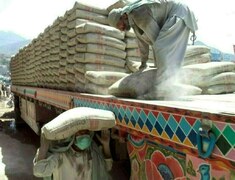Promote peaceful and inclusive societies for sustainable development, provide access to justice for all and build effective, accountable, and inclusive institutions at all levels— Sustainable Development Goal 16, United Nations (Department of Economic & Social Affairs)
The purpose of Sustainable Development Goals (SDGs) is to establish a worldwide framework for tackling intricate challenges and promoting sustainable development by 2030. Comprising 17 interlinked SGD’s, this framework is designed to confront a spectrum of global issues, including the eradication of poverty, assurance of quality education, promotion of gender equality, stimulation of economic growth, mitigation of environmental concerns, and advancement of peace and justice within the global community.
SDG 16 is dedicated to nurturing peaceful and inclusive societies to facilitate sustainable development, guarantee universal access to justice, and establish effective, accountable, and inclusive institutions at all levels. However, the current progress toward reaching the necessary benchmarks seems to be inadequate. The statistics indicate that whole-hearted efforts are still required globally to achieve the envisioned level of progress by 2030 and realize a more peaceful planet.
The global panorama reveals a stark reality, with 108.4 million individuals forcibly displaced worldwide by the close of 2022. A notable 50% surge in conflict-related deaths during 2022 is primarily attributed to the Ukraine and Russia War, yet this figure excludes the tragic genocide perpetrated by Israel against Palestinian children, women, journalists, and men.
Moreover, approximately 200,000 trafficking victims were identified worldwide between 2017-2020, with a substantial number remaining undetected. In 2021, the world experienced an alarming peak in international homicides, resulting in the loss of 458,000 lives. Beyond these distressing numbers, the assessment underscores the critical issue of youth underrepresentation in political spheres, emphasizing the urgent need for enhanced inclusivity and engagement to address this imbalance.
In pursuit of a safer and more secure world, Target 4 under Goal 16 of the Sustainable Development Agenda aims to significantly reduce illicit financial arms flows, improve the recovery, and return of stolen assets, and combat diverse forms of organized crime by the end of 2030.
This commitment underscores a global endeavour to address the financial dimensions of illegal arms trade, emphasizing the imperative to retrieve assets pilfered through criminal activities. By tackling these issues, the objective is to contribute to broader efforts for sustainable development and peace, demonstrating a shared commitment to curbing the intricate challenges posed by illicit financial flows and organized crime on a global scale.
In the global initiative to combat financial crimes and safeguard financial centers from illicit fund inflows, concerted efforts are being made to enhance transparency and accountability. Numerous jurisdictions are actively adopting or in the process of implementing beneficial ownership disclosure requirements, underscoring the necessity of revealing true identities of financial entities. Financial Action Task Force (FATF), a global watchdog, is diligently pursuing its agenda through its regional organs known as FATF-Style Regional Bodies (FSRBs) that collaboratively work towards enforcing globally recognized standards, notably the 40 recommendations, across member states. This cohesive approach signifies a shared commitment to establishing a standardized framework that effectively prevents and addresses world-wide financial crimes.
In addition, FATF actively monitors, assesses, and evaluates the performance of each jurisdiction. This is being done through a process of mutual evaluation, resulting in the publication of Mutual Evaluation Reports and follow-ups. These reports specifically outline deficiencies in both technical and effective aspects of Anti-Money Laundering and Combating Financing of Terrorism (AML-CFT) regime within each jurisdiction. By conducting these comprehensive assessments, FATF aims to ensure that countries not only adopt the recommended measures but also demonstrate effectiveness in their implementation, fostering a robust global framework against money laundering and terrorist financing.
The FATF has taken significant steps to enhance the monitoring of member states’ adherence to global standards. One notable change is the reduction of mutual evaluation duration from 10 to 6 years, allowing for more frequent assessments of compliance and performance. Additionally, FATF has revised its guidelines to address a spectrum of crimes more effectively and streamline compliance programs.
Recognizing the unique aspects posed by the digital era, FATF has modified its 40 recommendations aimed at providing comprehensive guidance on combating crimes specific to this area. FATF’s commitment to staying abreast of technological advancements underscores its dedication to countering emerging threats for improved evaluations and also empower member states to better align with the evolving landscape of global financial standards.
Recently, FATF rel-eased‘Consolidated Processes and Procedures for Mutual Evaluations and Follow-Up Universal Procedures’, incorporating flexibility into procedural arrangements. The changes in the FATF standards:
i. “All countries should be evaluated on the basis of the FATF Standards and Methodology as they exist at the date the country’s mutual evaluation (ME) technical compliance submission is due. For the purposes of regular or enhanced follow-up, countries should be evaluated on the basis of the FATF Methodology as it exists at the date the country’s submission is due for its follow-up report. The report should state clearly if an assessment has been made against recently amended Standards.
ii. To ensure equality of treatment, and to protect the international financial systems, technical compliance with any FATF Standards that have been revised after the date the country’s ME technical compliance submission is due will be assessed as part of the follow-up process if they have not been assessed as part of the mutual evaluation.
iii. From time to time, the FATF Plenary makes decisions regarding interpretation of the Standards and application of the FATF Methodology and Procedures. These decisions are recorded in the FATF Summary Record7 of the Plenary where the decision is made, takes effect immediately and are applied to all subsequent reports. However, such decisions do not constitute changes to the FATF Standards or the FATF Methodology and do not trigger automatic reassessment as part of the follow up process”.
Apart from the changes in the FATF standards, the ‘Consolidated Processes and Procedures for Mutual Evaluations and Follow-Up Universal Procedures’ further streamline procedures of highlighting that these should be determined based on risk-related factors which include, (i)the primary consideration is the date of the country’s last Mutual Evaluation Report (MER), aiming to ideally maintain a gap between 5 to 11 years since the previous assessment, (ii) consideration of the country’s implementation of FATF Standards, resulting residual risk, and follow-up status, including its position in the ICRG process and (iii) taking into account the relative size of the economy and financial sector in comparison to the overall economy.
While the global community and regulators strive to eliminate financial crimes and enforce global standards, the U.N, through its SDGs, is actively addressing illicit financial flows. Despite these global efforts, Pakistan, as a responsible country, grapples with challenges such as political and economic instability, a deteriorating law and order situation, and an inadequate response to financial crimes.
Our rating in addressing FATF standards is suboptimal, requiring improvements in the effectiveness of its AML-CFT regime and technical compliance with recommendations.
Additionally, Pakistan’s standing on the corruption perception index is quite unsatisfactory. This is an opportune moment for us to address these challenges. If we do not act promptly, the initiation of our mutual evaluation process becomes imminent according to the amended standards, and ultimately, we may find ourselves attributing our own failures to both the global community and the watchdog.
Copyright Business Recorder, 2023
The writer is MA, LLB, Advocate High Court, Visiting Faculty at Lahore University of Management Sciences (LUMS), member Advisory Board and Visiting Senior Fellow of Pakistan Institute of Development Economics (PIDE), is author of numerous books and articles on Pakistani tax laws. She is editor of Taxation and partner of Huzaima & Ikram. From 1984 to 2003, she was associated with Civil Services of Pakistan
The writer is a corporate lawyer based in the US with extensive expertise in financial regulations, including Virtual Asset Service Providers (VASPs), corporate governance, and global economic policies. He holds an LLM from Washington University in St. Louis and has completed the Management Development Program at the Wharton School. He has developed regulatory frameworks for North American and South American Financial Institutions and has consulted and trained bureaucrats of different regions. He can be reached at abdulrauff@hotmail.com























Comments
Comments are closed.